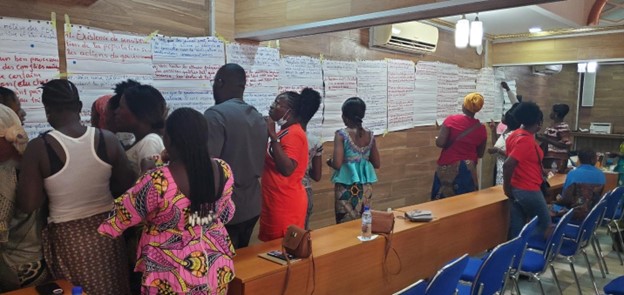In 2019, ORB International began supporting the Peace through Evaluation, Learning, and Adapting (PELA) task order. PELA, implemented by International Business and Technical Consultants, Inc. (IBTCI), is a four-year project that supports USAID and West Africa’s Regional Peace and Governance Office. PELA pursues three main goals:
- to respond to the research and learning needs of USAID’s West Africa team, USAID’s surrounding Operating Units, and implementing partners (IPs) throughout the region
- to assist USAID West Africa to be a more effective, efficient, and adaptable operating unit in strengthening systems of non-violent conflict management
- to contribute to strengthening USAID West Africa’s CVE practice and promotion of peace
The importance of this work cannot be overstated. The proliferation of violent extremism across West Africa has made improving CVE-related policy increasingly critical. According to the Africa Center for Strategic Studies, extremist violence in Burkina Faso, Mali, and Niger increased by 70% in 2021. ORB has so far assisted PELA through activities that focus specifically on promoting learning about CVE-related activities and enhancing knowledge of relevant issues to improve strategic policy and decision-making.
In 2019, ORB conducted a study in five coastal west African states: Cote d’Ivoire, Benin, Ghana, Togo, and Guinea. Field interviewers conducted face to face interviews with a nationally-representative sample from each country. These interviews aimed to inform USAID’s CVE strategy in West Africa by collecting data pertaining to environmental factors, social cohesion, political will, and security sector strength.
ORB then conducted two rounds of field data collection in Niger, Mali, and Burkina Faso through the novel Community Generated Indicators (CGI) approach to explore everyday citizens’ notions of peace and conflict. This activity aimed to understand how citizens experience localized conflict, and then designed a set of peace and conflict indicators that were meaningful to the local community. After refining these indicators through interactive focus groups, they were formalized into a methodological approach to generate community-based indicators for analysis.

Participants in a focus group discussion selecting indicators under the CGI method.
Following data collection using the CGI approach, ORB implemented a Community-Generated Indicators (CGI) Training of Trainers (TOT). ORB provided a 90-minute virtual presentation to USAID representatives to familiarize them with the CGI methodology. ORB then conducted a four-day training with USAID and implementing partner (IP) staff, which was followed up with Learning and Mentoring sessions for those interested.
Most recently, in 2022, ORB completed a third round of data collection using the CGI approach in Niger and Burkina Faso. This data collection aimed to assess major shifts in the relevance of community generated indicators created in 2019. It also involved assessments of new applications of CGI in other sectors, including good governance, accountability, and justice, as localized experiences of VE are often interlinked with governance issues.
At the end of this year, PELA will come to a close. As USAID prepares for PELA II, ORB remains ready to support USAID in improving strategic CVE policy and expanding the resiliency of local communities in the region moving forward.
